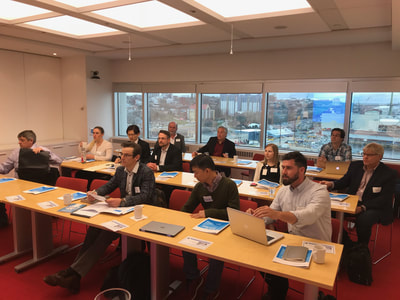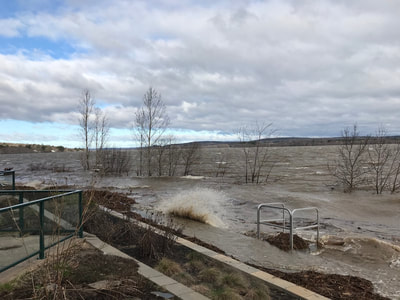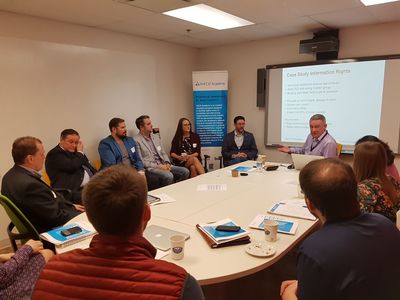|
How a workshop on term sheets has evolved to helping build better and deeper startup ecosystems
So when I was asked by Canada’s National Angel Capital Organization (NACO) in 2015 to do a workshop on term sheets and deal structuring, I was initially somewhat hesitant. Life was busy and what possibly could I tell angel investors about terms sheets that they didn’t already know? In my mind this was all old stuff about which there was lots of information to be found online, assuming you could Google the right terms. Yet, I gave it a go and now some three years on the 4-hour workshop has evolved from a relatively dry start to a lively discussion on deal terms and start-ups with lots of case studies and some horror stories that have already provided their value in steering some investors away from bad situations. And there is always a panel discussion that brings out even more good stuff with the audiences. More importantly, there are now more and more entrepreneurs in the audience for whom this is as instructive as it is for seasoned and aspiring angel investors. And then there are lawyers and accountants and others active in the ecosystem that join the sessions. The success has now even spawned a new workshop, ‘The Art of Valuation’ and I can proudly say that I have been to places that I never thought I would ever go to. Active investing in start-ups is now happening in places as remote and far away as Whitehorse in the Yukon and they are making solid progress. In the first week of May a marathon was organized by the NACO team, five term sheet workshops, back-to-back, over five days in Atlantic Canada. The trip took us to St. John’s, Halifax, Charlottetown, Moncton to finish in the city that was battling the floods, Fredericton. And in each town I went through the now 90+ slides with case studies, theory and a local panel. And each time I was wondering if the audience would ‘get into it’, like it and engage with it. One of the things I have learned is that in some places there are non-stop questions and an incredible level of engagement (Regina in Saskatchewan comes to mind) and in others, well, I will not mention any names but sometimes you have to beg the listeners to challenge you or ask any questions. You never can tell where the debate will go. It also means I have learned to pace, if there is no debate I automatically fill up the spare time with start-up anecdotes and when I run out of time there are ways to speed up the content delivery without the audience really noticing it. The Atlantic region did well in this department, there was good attendance and great enthusiasm to learn. It occurred to me that each year of course new entrepreneurs come to the market to start a business and each year fresh investors appear once they have cashed out, retired or otherwise are tired of playing the real estate or stock market game. And age is totally irrelevant: I see very young angels and I see older entrepreneurs. In my own BC-based network I am working with two female founders who are well into their sixties but who share a drive that should put many young people to shame. They all want to get going and it was no different in the Atlantic. It also makes for great encounters, in Fredericton I ran into an older Dutch entrepreneur who was somewhat familiar to me, and when I asked if he was that well-known news anchor from the 80s and 90s in The Netherlands he confirmed enthusiastically, “yes, that is me” followed by “can you take a look at my new venture?” At the same event in Fredericton, a young female entrepreneur on the panel was able to share one of the best case studies ever on dilution and convertible notes, it got everyone in the audience (and me) thinking. In Halifax I ended up talking to an entrepreneur who had put some four years into developing a pretty revolutionary travel app – yes there is still lots of space in that sector. In Moncton a biotech entrepreneur confidently told me had raised $10 million from angels for his venture and in St John’s a team of young cleantech founders told me over beers how they had been able to get a British Columbia angel investor into their deal. And the processes put in place by an angel fund in Charlottetown were, to say the least, highly professional and impressive. Talking terms, talking deals has moved from talking to angel investors about how to avoid mistakes and do better deals, to an integrated experience that helps the early stage ecosystem as a whole. Together with Boris Mann we developed the Common Docs, which is now a prime resource for investors and entrepreneurs in all of Canada (and internationally), delivering a great toolbox to do deals better and faster and not waste lawyer's time. Taken together, all these elements have grown into something that is facilitating the diversification and growth of our economies where more entrepreneurs (again, of all ages) start ventures across many different sectors and are able to source capital from an ever widening pool of angel investors, venture capital firms and other sources. It is a great story and it gives me enormous joy to be to be part of it. Note: the tour would not have been a success without the great team consisting of NACO staff Yuri Navarro and Elena Dudarenko, Kirk Hamilton who presented 'An Entrepreneur's Guide to Angels' and our Atlantic wizard, Sally Ng, Photos: from left to right: Halifax, the hotel patio in Fredericton, Moncton.
0 Comments
|
Archives
April 2020
Categories
All
|



 RSS Feed
RSS Feed